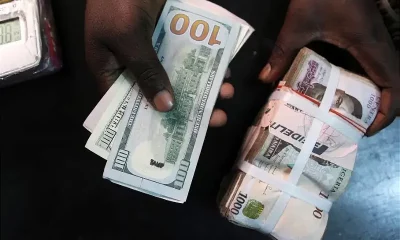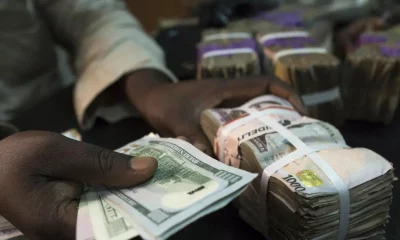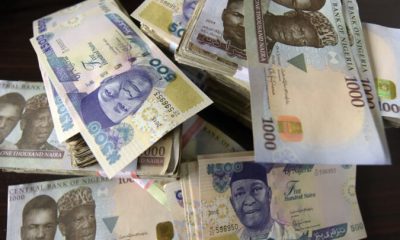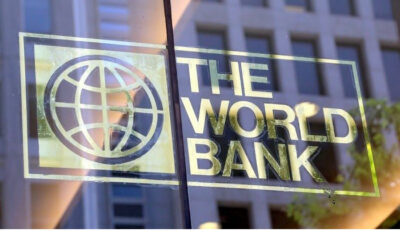Headline
Naira Under Pressure, Nigeria May Seek Dollar Loan – IMF
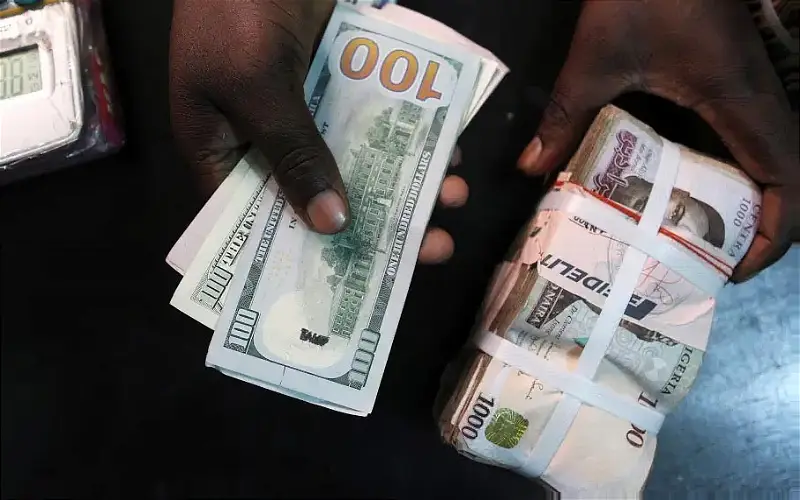
The International Monetary Fund has said the naira is currently under pressure and Nigeria is free to seek loan from the Fund to stabilise the currency if it considers a good option.
The Washington-based lender however noted that recent exchange reforms and other steps taken by the Nigerian authorities were in order.
It also expressed support for Olayemi Cardoso-led Central Bank of Nigeria’s last week’s decision to halt the eight-year foreign exchange ban on cement, rice, poultry products and 40 other items. The past administration of the CBN had imposed the forex ban in 2015.
They made this known at the World Bank Group/International Monetary Fund Meeting in Marrakech, Morocco.
IMF said inflation in Nigeria was still high at 26 per cent in August while the naira continued to be under pressure.
The local currency, which fell from about 450/dollar to an average of 760/dollar following the exchange reforms of the President Bola Tinubu, has continued to drop at the parallel market.
The local currency plunged to 1045/dollar on Thursday.
While reiterating the need to tighten monetary policy by raising the Monetary Policy Rate and mopping up excess naira liquidity, the bank said foreign exchange market confidence could benefit from more clarity on Central Bank of Nigeria dollar obligations.
A JP Morgan report put the Central Bank of Nigeria forward contract obligations at $6.8bn but stakeholders said the amount could be more.
In a response to emailed questions by The PUNCH on whether the Fund is open to giving Nigeria a dollar loan to support the naira, the Fund said, ‘Nigeria is facing high inflation of 26 percent year-on-year in August and pressure on the naira. In June, the authorities unified the different official exchange rate windows. This was a welcome step as will help to strengthen the functioning of the foreign exchange market. We also welcome the CBN’s recent decision to lift the ban on the 43 items previously restricted from accessing foreign exchange from the official window. This is a positive step in the direction of a shift to a market-determined exchange rate regime.”
It further stated that “the authorities should urgently tighten monetary policy and take measures to ensure markets maintain full confidence in the Central Bank of Nigeria. Tightening monetary policy will have to include raising the Monetary Policy Rate and mopping up excess naira liquidity. Market confidence will benefit from more clarity on Central Bank of Nigeria dollar obligations.”
On the possibility of a currency support loan, it said, “As every member country of the IMF, Nigeria can seek IMF financing if they see this as helpful to address external imbalances. The Nigerian authorities have not approached the IMF with a request for financing.”
Meanwhile, the IMF has said it is confident the new CBN governor, Cardoso, and the new Minister of Finance and Coordinating Minister of the Economy, Wale Edun, have the capacity to take right decisions to boost the fortunes of the economy.
Edun had during the World Bank/IMF meeting listed a number of fiscal initiatives aimed at collecting more tax revenue and reducing waivers to boost economic growth.
Also, Cardoso had listed plans to stabilise the market and navigate the country through the current turbulent economic challenges.
The CBN governor said the new leadership team would review foreign exchange market policies, the central bank corporate governance practices and monetary policies to reposition the apex bank to achieve its core mandates.
Already, he said the new team members, who resumed fully at the bank a few weeks ago following their confirmation by the National Assembly, was currently carrying out a comprehensive assessment of the challenges facing the central bank.
According to him, the ongoing assessment of the bank will lead to tweaking or jettisoning of some policies as part of a wide-ranging programme to reform the bank as a catalyst for economic growth and development.
In a document titled, “Preliminary assessment of challenges facing the Central Bank of Nigeria”, Cardoso outlined the challenges facing the CBN and introduced high-level proposals aimed at addressing reformation challenges.
He also examined the role of a refocused central bank in supporting the economic agenda of President Bola Tinubu.
He also harped on what should be put in place to revert to evidence-based monetary policies, including the discontinuation of unorthodox monetary policies and foreign currency management, unorthodox use of Ways and Means spending, and development of control limits in the use of Ways and Means in financing public sector deficit.On the backlog of FX demand, Cardoso emphasised the need for creative financing options for clearing the short to medium-term backlog.
The new central governor also plans to place a limit on the CBN’s fiscal side interventions, while also proposing responses to addressing inflation and price stability issues.
Cardoso said, “These problem statements need in-depth review by the new Central Bank leadership team to determine what mechanisms are currently working, what can be tweaked or dispensed with and what new tools need to be introduced”
On how the CBN can be refocused to support economic growth, he said, “The economic policy proposals of the administration identify a set of fiscal reforms and growth targets that will achieve $1tn GDP within eight years.
In reviewing selected BRICS and MINT countries, with large populations and similar developmental characteristics as Nigeria, it is interesting to identify macro-economic indices that point to Nigeria’s economic trajectory, given the faithful implementation of the proposed economic reforms. In economies bigger than $1tn, these indicators include moderate inflation, sizable foreign reserves, and the capacity to quickly rebound from a cyclical economic downturn.”
Business
Nigeria needs over $2bn to revive Ajaokuta Steel Plant, says Minister

Minister of Steel Development, Shuaibu Abubakar-Audu says funding is the greatest challenge in efforts to revive the moribund Ajaokuta Steel Plant as Nigeria needs an excess of $2 billion to invest in it.
The Minister made this known in Ilorin, the Kwara State capital during his official visit to Governor Abdulrahman Abdulrazaq and other indigenous steel sector stakeholders in the state.
He noted that the current administration of President Bola Tinubu is working to grow the economy of the country by $1 trillion which involves supporting indigenous key players in the steel sector to industrialise Nigeria.
Abubakar-Audu also maintained that there is an ongoing discussion to have an industrial park at the Ajaokuta Steel Mill to attract key players in the sector. He explained that his Ministry is engaging key industry players across the country with a view to turning around the economy.
Headline
Tinubu resumes work after foreign trip
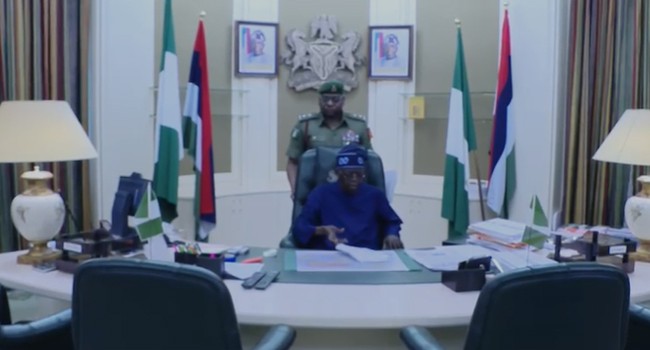
President Bola Tinubu has officially resumed work at the Villa, a day after returning from his trip abroad.
The President walked from his residence to his office accompanied by his security aides, his Chief of Staff Femi Gbajabiamila; the National Security Adviser, Nuhu Ribadu, and other aides.
President Tinubu traveled to the Netherlands on the 23rd of April at the invitation of the Dutch Prime Minister Mark Rutte. While in the Netherlands, he also met with the Nigerian-Dutch business community.
He proceeded to Riyadh, Saudi Arabia for the World Economic Forum (WEF) where he engaged global leaders with the view to winning more investors in Nigeria.
After the meeting in Saudi Arabia, President Tinubu was said to have proceeded to Europe on a private visit.
He returned to the country on Wednesday, after over two weeks of being away.
The governors of Kaduna and Plateau states, Uba Sani and Caleb Mutfwang paid a visit to the President on Thursday.
The reason for their visits could not be ascertained at the time of filing the report.
-

 Headline3 hours ago
Headline3 hours agoSuspend cybersecurity levy– Reps to CBN
-

 Headline3 hours ago
Headline3 hours agoTinubu resumes work after foreign trip
-

 Business3 hours ago
Business3 hours agoNigeria needs over $2bn to revive Ajaokuta Steel Plant, says Minister
-

 News3 hours ago
News3 hours agoShan George’s money returned to Zenith Bank account
-
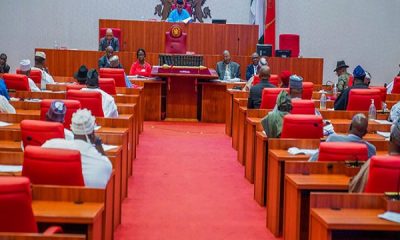
 News2 hours ago
News2 hours agoSenate approves death penalty for drug traffickers



